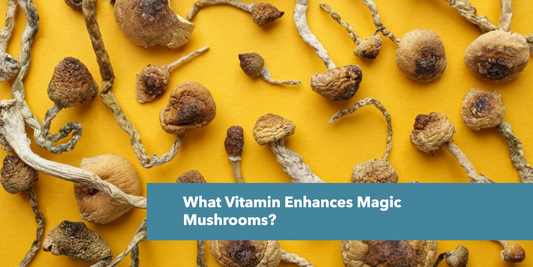What are the effects of psilocybin on the brain?
Psilocybin, the psychedelic compound found in certain mushrooms, significantly influences brain function. Its primary mechanism involves interacting with serotonin receptors, particularly the 5-HT2A subtype. When you consume psilocybin, it’s metabolized into psilocin, which readily crosses the blood-brain barrier.
Altered Brain Connectivity One of the most striking effects of psilocybin is its ability to disrupt typical brain connectivity patterns. You might imagine the brain as a complex network of interconnected neurons. Psilocybin seems to loosen these connections, creating a state of increased brain entropy or randomness. This altered connectivity is believed to underlie the profound shifts in perception and consciousness often reported by users.
Impact on the Default Mode Network The default mode network (DMN) is a brain network associated with self-reflection, mind-wandering, and our sense of self. Psilocybin has been shown to significantly reduce activity in this network. This reduction is thought to contribute to the dissolution of ego boundaries and the sense of interconnectedness often described by psychedelic users.
Neurotransmitter Modulation Beyond serotonin, psilocybin also affects the release of other neurotransmitters like dopamine and glutamate. These changes can influence mood, motivation, and cognitive processes. It's important to note that the exact role of these neurotransmitters in psychedelic experience is still under investigation.
How does psilocybin change brain function?
Psilocybin, the psychedelic compound found in certain mushrooms, induces profound changes in brain function. At its core, psilocybin acts as a potent agonist at serotonin 2A receptors, a key player in regulating mood, perception, and cognition.
Disrupting Neural Networks One of the most significant ways psilocybin alters brain function is by disrupting the typical patterns of communication between brain regions.
For Example
Imagine your brain as a complex network of interconnected cities. Psilocybin acts like a disruptor, altering the traffic flow between these cities, and leading to novel and often unexpected experiences. This disruption is thought to underlie the characteristic alterations in perception and consciousness associated with psychedelic states.
Modulating the Default Mode Network The default mode network (DMN) is a brain network associated with self-reflection, mind-wandering, and our sense of self. Psilocybin significantly dampens the activity of the DMN, which may contribute to the dissolution of ego boundaries and the sense of interconnectedness often reported by users.
Increased Brain Entropy You can think of brain entropy as a measure of disorder or randomness in brain activity. Psilocybin increases brain entropy, leading to a more chaotic and less predictable state. This increased entropy is believed to underlie the sense of openness and expanded consciousness often associated with psychedelic experiences.
Which Brain Region is Affected by psilocybin?
Psilocybin, the psychedelic compound found in certain mushrooms, primarily influences the following brain regions:
Default Mode Network (DMN): This network is involved in self-reflection, mind-wandering, and our sense of self.
Psilocybin significantly reduces activity in this area, contributing to the altered states of consciousness often reported by users.
Visual Cortex: Responsible for processing visual information, this area is highly activated during psychedelic experiences, leading to vivid hallucinations and altered perception.
Prefrontal Cortex: Often referred to as the brain's "control center," this region is involved in decision-making, planning, and personality. Psilocybin disrupts its typical function, contributing to the altered mental states.
Hippocampus and Amygdala: These regions play roles in memory and emotion, respectively. While their involvement is still under investigation, they are believed to contribute to the emotional and memory-related aspects of the psychedelic experience.
Special Effects
How does psilocybin impact brain connectivity?
Key effects on brain connectivity:
Increased Entropy: Psilocybin increases randomness or disorder in brain activity. This means that the brain becomes less predictable and more open to new connections.
Reduced Functional Connectivity: Traditional patterns of communication between brain regions are weakened. This disruption allows for new and unusual connections to form.
Increased Global Connectivity: There's a tendency for more widespread connections across the brain, rather than isolated activity in specific regions.
Desynchronization of Brain Networks: Normal brain networks, like the default mode network, become less synchronized, leading to a breakdown of typical mental processes.
What is the role of serotonin receptors in psilocybin's brain effects?
Serotonin receptors, particularly the 5-HT2A subtype, are central to the effects of psilocybin. When psilocybin is ingested, it's metabolized into psilocin, which then binds to these receptors.
Role of Serotonin Receptors:
Activation of Brain Circuits: By stimulating 5-HT2A receptors, psilocin activates specific brain circuits involved in perception, mood, and consciousness.
Altered Brain Function: This activation leads to changes in brain activity patterns, including increased entropy and altered connectivity.
Modulation of Neurotransmitter Release: Psilocybin can influence the release of other neurotransmitters, such as dopamine and glutamate, through its interaction with serotonin receptors.
Neuroplasticity: Some research suggests that long-term changes in brain function, or neuroplasticity, might be linked to the activation of serotonin receptors by psilocybin.
Does psilocybin cause long-term changes in the brain?
Yes, there is increasing evidence suggesting that psilocybin can induce long-term changes in the brain. Psilocybin seems to promote the growth of new neural connections, a process known as neuroplasticity. This could be linked to the potential therapeutic benefits observed in conditions like depression.
The way the brain's networks communicate can be altered for extended periods after psilocybin use. This could contribute to lasting effects on mood and cognition.
Therapeutic Potential
Can psilocybin be used to treat mental health conditions?
Yes, there is increasing evidence suggesting that psilocybin could be promising therapeutic uses for mental health conditions.
Psilocybin-assisted therapy has shown potential in reducing symptoms of depression, especially in cases of treatment-resistant depression. It has been explored as a treatment for anxiety related to terminal illnesses.
How does psilocybin affect neuroplasticity?
Psilocybin has a profound impact on neuroplasticity, the brain's ability to form new neural connections and reorganize itself. This is believed to be a key factor in its potential therapeutic effects.
Psilocybin seems to stimulate the growth of new neurons and synapses, the connections between them. It creates a period of heightened neuroplasticity, allowing the brain to be more receptive to change. By disrupting established neural patterns, psilocybin can encourage the formation of new connections, leading to altered brain function.
While the exact mechanisms are still under investigation, the increased neuroplasticity induced by psilocybin might contribute to the long-term benefits observed in some individuals.
What is the potential of psilocybin for treating depression and anxiety?
Psilocybin shows immense promise in treating depression and anxiety. Research has indicated significant potential for this compound to offer relief where traditional treatments have fallen short.
Unlike many antidepressants, psilocybin can often provide relief from depressive symptoms within a single session, and these effects can persist for weeks or even months.
Psilocybin's ability to induce neuroplasticity and alter brain connectivity offers a novel approach to treating conditions that involve rigid thought patterns and emotional responses. For individuals who haven't responded to conventional treatments, psilocybin could be a game-changer.
Risks and Concerns
Are there negative effects of psilocybin on the brain?
Yes, there are potential negative effects of psilocybin on the brain. While research into its therapeutic potential is promising, it's essential to acknowledge the risks.
Potential Negative Effects:
Psychosis-like Symptoms: In some individuals, especially those with underlying mental health conditions, psilocybin can trigger psychosis-like symptoms, including paranoia, delusions, and hallucinations.
Hallucinogen Persisting Perception Disorder (HPPD): This condition involves ongoing visual disturbances, such as seeing trails or halos, even after the drug has worn off. While rare, it can be distressing.
Anxiety and Panic: Psilocybin can induce intense anxiety and panic, particularly in unprepared individuals or in adverse settings.
Long-Term Cognitive Effects: While the evidence is limited, there's a possibility of long-term cognitive impairments with repeated or high-dose use, although this is a subject of ongoing research.
What is the risk of psychosis from psilocybin use?
The risk of psychosis from psilocybin use is increased, but not guaranteed. Several factors influence this risk:
Individual Predisposition: People with a family history of psychosis, underlying mental health conditions, or a tendency towards anxiety or paranoia are at higher risk.
Dosage: High doses of psilocybin increase the likelihood of experiencing psychosis-like symptoms.
Setting: A safe and supportive environment can mitigate the risk of adverse reactions, including psychosis.
Can psilocybin lead to addiction?
Psilocybin has a low potential for addiction. Unlike substances like alcohol, nicotine, or opioids, it doesn't produce the same physiological dependence.
While there's a possibility of developing a psychological dependence, meaning someone might crave the experience, this is less common than with other substances. The nature of the psychedelic experience, often intense and transformative, can deter frequent use.




